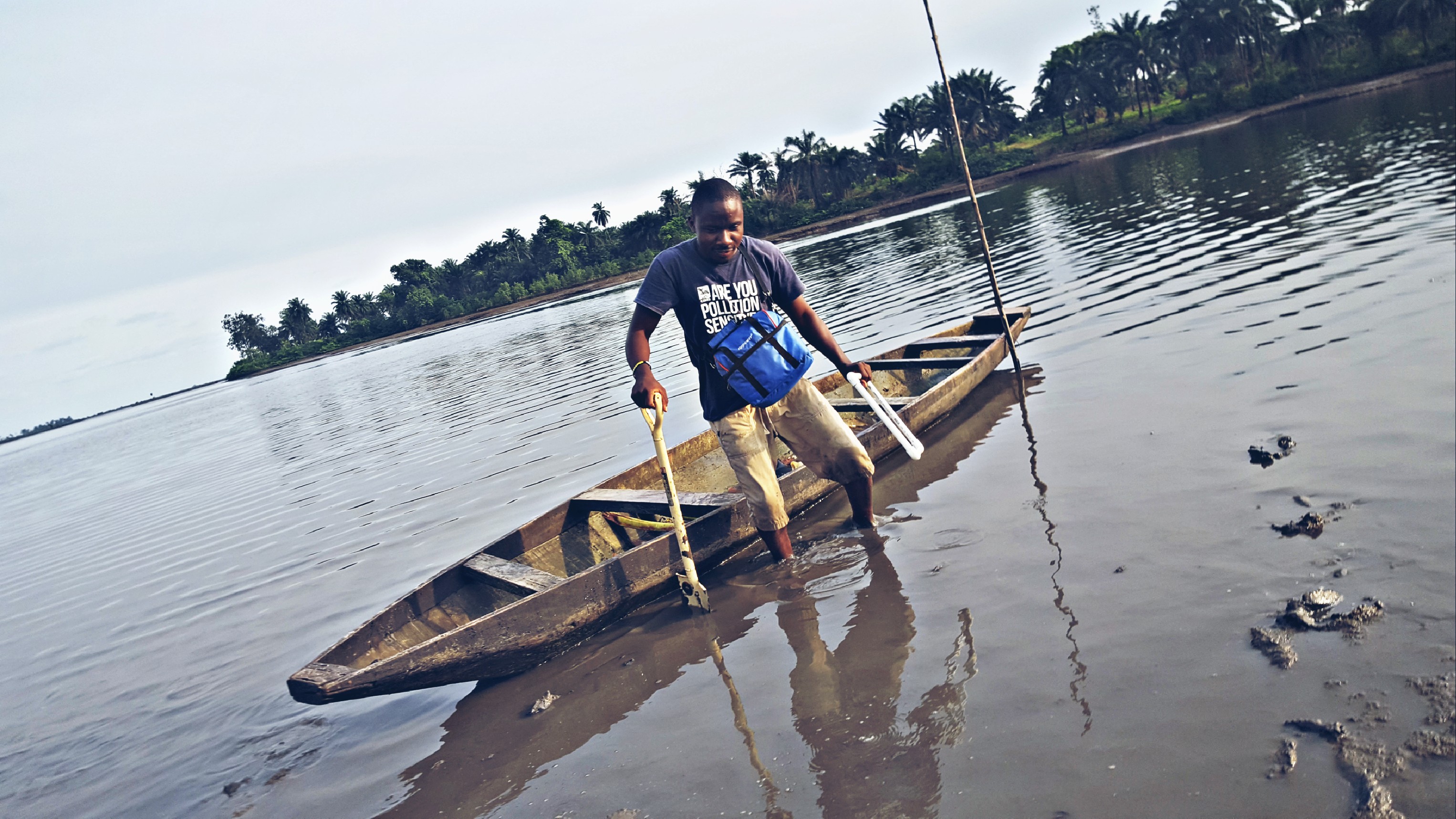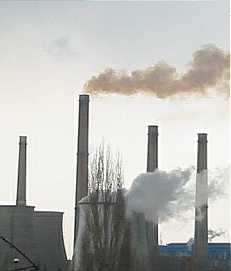|
RIVPACS
RIVPACS (River Invertebrate Prediction and Classification System) is an aquatic biomonitoring system for assessing water quality in freshwater rivers in the United Kingdom. It is based on the macroinvertebrate species (such as freshwater shrimp, freshwater sponges, worms, crayfish, aquatic snails, freshwater mussels, insects, and many others) found at the study site during sampling. Some of these species are tolerant to pollution, low dissolved oxygen, and other stressors, but others are sensitive; organisms vary in their tolerances. Therefore, different species will usually be found, in different proportions, at different river sites of varying quality. Some organisms are especially good indicator species. The species found at the reference sites collectively make up the species assemblage for that site and are the basis for a statistical comparison between reference sites and non-reference sites. The comparison between the expected species and the observed species can then be us ... [...More Info...] [...Related Items...] OR: [Wikipedia] [Google] [Baidu] |
Aquatic Biomonitoring
Aquatic biomonitoring is the science of inferring the ecological condition of rivers, lakes, streams, and wetlands by examining the organisms (fish, invertebrates, insects, plants, and algae) that live there. While aquatic biomonitoring is the most common form of biomonitoring, any ecosystem can be studied in this manner. Purpose Aquatic biomonitoring is an important tool for assessing aquatic life forms and their ecosystems. Monitoring aquatic life can also be beneficial in understanding land ecosystems. Aquatic biomonitoring can reveal the overall health and status of the environment, can detect environmental trends and how different stressors will affect those trends, and can be used to evaluate the effects that various environmental activities may have on the overall health of the environment. Water pollution and general stresses to aquatic life have a major impact on the environment. The main sources of pollution to oceans, rivers, and lakes are human caused events or acti ... [...More Info...] [...Related Items...] OR: [Wikipedia] [Google] [Baidu] |
Countryside Council For Wales
The Countryside Council for Wales (CCW; cy, Cyngor Cefn Gwlad Cymru (CCGC)) was a Welsh Assembly sponsored body responsible for wildlife conservation, landscape and countryside access authority for Wales. It was merged with Forestry Commission Wales, and Environment Agency Wales to form Natural Resources Wales, a single body managing Wales' environment and natural resources, on 1 April 2013. As a statutory advisory and prosecuting body, the Countryside Council for Wales 'championed the environment and landscapes of Wales and its coastal waters as sources of natural and cultural riches, as a foundation for economic and social activity, and as a place for leisure and learning opportunities'. It aimed to 'make the environment a valued part of everyone's life in Wales'. The Council of CCW consisted of a Chairman and a maximum of ten members. They were appointed by the Welsh Government which also provided CCW's annual budget. The Council gave direction to the around 500 staff ... [...More Info...] [...Related Items...] OR: [Wikipedia] [Google] [Baidu] |
Water Pollution
Water pollution (or aquatic pollution) is the contamination of water bodies, usually as a result of human activities, so that it negatively affects its uses. Water bodies include lakes, rivers, oceans, aquifers, reservoirs and groundwater. Water pollution results when contaminants are introduced into these water bodies. Water pollution can be attributed to one of four sources: sewage discharges, industrial activities, agricultural activities, and urban runoff including stormwater. It can be grouped into surface water pollution (either fresh water pollution or marine pollution) or groundwater pollution. For example, releasing inadequately treated wastewater into natural waters can lead to degradation of these aquatic ecosystems. Water pollution can also lead to water-borne diseases for people using polluted water for drinking, bathing, washing or irrigation. Water pollution reduces the ability of the body of water to provide the ecosystem services (such as drinking wat ... [...More Info...] [...Related Items...] OR: [Wikipedia] [Google] [Baidu] |
Spain
, image_flag = Bandera de España.svg , image_coat = Escudo de España (mazonado).svg , national_motto = ''Plus ultra'' (Latin)(English: "Further Beyond") , national_anthem = (English: "Royal March") , image_map = , map_caption = , image_map2 = , capital = Madrid , coordinates = , largest_city = Madrid , languages_type = Official language , languages = Spanish , ethnic_groups = , ethnic_groups_year = , ethnic_groups_ref = , religion = , religion_ref = , religion_year = 2020 , demonym = , government_type = Unitary parliamentary constitutional monarchy , leader_title1 = Monarch , leader_name1 = Felipe VI , leader_title2 = Prime Minister , leader_name2 = Pedro Sánchez , legislature = C ... [...More Info...] [...Related Items...] OR: [Wikipedia] [Google] [Baidu] |
Fauna (animals)
Fauna is all of the animal life present in a particular region or time. The corresponding term for plants is ''flora'', and for fungi, it is ''funga''. Flora, fauna, funga and other forms of life are collectively referred to as '' biota''. Zoologists and paleontologists use ''fauna'' to refer to a typical collection of animals found in a specific time or place, e.g. the "Sonoran Desert fauna" or the " Burgess Shale fauna". Paleontologists sometimes refer to a sequence of faunal stages, which is a series of rocks all containing similar fossils. The study of animals of a particular region is called faunistics. Etymology ''Fauna'' comes from the name Fauna, a Roman goddess of earth and fertility, the Roman god Faunus, and the related forest spirits called Fauns. All three words are cognates of the name of the Greek god Pan, and ''panis'' is the Greek equivalent of fauna. ''Fauna'' is also the word for a book that catalogues the animals in such a manner. The term was first use ... [...More Info...] [...Related Items...] OR: [Wikipedia] [Google] [Baidu] |
Welsh Assembly Government
Welsh may refer to: Related to Wales * Welsh, referring or related to Wales * Welsh language, a Brittonic Celtic language spoken in Wales * Welsh people People * Welsh (surname) * Sometimes used as a synonym for the ancient Britons (Celtic people) Animals * Welsh (pig) Places * Welsh Basin, a basin during the Cambrian, Ordovician and Silurian geological periods * Welsh, Louisiana, a town in the United States * Welsh, Ohio, an unincorporated community in the United States See also * Welch (other) Welch, Welch's, Welchs or Welches may refer to: People *Welch (surname) Places * Welch, Oklahoma, a town, US *Welches, Oregon, an unincorporated community, US *Welch, Texas, an unincorporated community, US * Welchs, Virginia, an unincorporated c ... * * * Cambrian + Cymru {{Disambiguation Language and nationality disambiguation pages ... [...More Info...] [...Related Items...] OR: [Wikipedia] [Google] [Baidu] |
South West Water
South West Water provides drinking water and waste water services throughout Devon and Cornwall and in small areas of Dorset and Somerset. South West Water was created in 1989 with the privatisation of the water industry. It was preceded by the South West Water Authority which was formed by the Water Act 1973 as one of ten regional water authorities formed by a merger of various statutory and local authority water undertakings. South West Water is part of the Pennon Group. History South West Water was formed in 1989 when the water industry in the United Kingdom was privatised. It is responsible for the supply of the region's drinking water, the treatment and disposal of sewage, and the protection of inland and bathing waters. It is closely regulated by Ofwat, the Water Services Regulation Authority, being required to conform to stringent United Kingdom and European Union standards. Water from the Littlehampston treatment works, which serves about 162,000 customers in the Torbay ... [...More Info...] [...Related Items...] OR: [Wikipedia] [Google] [Baidu] |
Scottish Natural Heritage
NatureScot ( gd, NàdarAlba), which was formerly known as Scottish Natural Heritage, is an executive non-departmental public body of the Scottish Government responsible for the country's natural heritage, especially its natural, genetic and scenic diversity. It advises the Scottish Government on nature conservation, and acts as a government agent in the delivery of conservation designations, i.e. national nature reserves, local nature reserves, national parks, Sites of Special Scientific Interest (SSSIs), Special Areas of Conservation, Special Protection Areas and the national scenic areas. It receives annual funding from the Government in the form of Grant in Aid to deliver Government priorities for the natural heritage. NatureScot is the Scottish Government's adviser on all aspects of nature, wildlife management and landscape across Scotland, and also helps the Scottish Government meet its responsibilities under European environmental laws, particularly in relation to t ... [...More Info...] [...Related Items...] OR: [Wikipedia] [Google] [Baidu] |
Scottish Environment Protection Agency
The Scottish Environment Protection Agency (SEPA; gd, Buidheann Dìon Àrainneachd na h-Alba) is Scotland's environmental regulator and national flood forecasting, flood warning and strategic flood risk management authority.Environment Act (1995). (c.2), London, HMSO ccessed 29 April 2010 Its main role is to protect and improve Scotland's environment. SEPA does this by helping business and industry to understand their environmental responsibilities, enabling customers to comply with legislation and good practice and to realise the economic benefits of good environmental practice. One of the ways SEPA does this is through the |
Freshwater Biological Association
The Freshwater Biological Association (FBA) is an independent scientific organisation founded in 1929 in Cumbria by Felix Eugen Fritsch, William Harold Pearsall, Francis Balfour-Browne, and Robert Gurney among others. Whilst originally created to be a research station it has evolved into a learned society whose mission is "to promote the sustainable management of freshwater ecosystems and resources, using the best available science". It works closely alongside other organisations, notably Natural Environment Research Council. The FBA promotes freshwater science through innovative research, maintained specialist scientific facilities, a programme of scientific meetings, production of publications, and by providing sound independent scientific opinion. As of 2010, the FBA hosted both published and unpublished collections, two specialist libraries and varieties of long term data sets from sites of scientific significance. It is managed by the Chief Executive who was assisted by 25 s ... [...More Info...] [...Related Items...] OR: [Wikipedia] [Google] [Baidu] |
Northern Ireland Environment Agency
The Northern Ireland Environment Agency (NIEA) is an executive agency within the Department of Agriculture, Environment and Rural Affairs (DAERA). It is responsible for conservation of Northern Ireland's environment and natural heritage. Originally part of the Department of the Environment (DOENI), the agency was called the Environment and Heritage Service (EHS) until 1 July 2008, and also had responsibility for the historic environment. On 16 May 2016 the DOENI was dissolved and NIEA became part of DAERA. At the same time, the historic environment functions of NIEA were transferred to the Department for Communities. NIEA is responsible for a range of protected areas in Northern Ireland, including eight areas of outstanding natural beauty, 47 national nature reserves, 43 special areas of conservation, and 10 special protection areas. The NIEA employs 630 people as of 2020. Equivalent bodies in other parts of the United Kingdom * England: Environment Agency, Natural England ... [...More Info...] [...Related Items...] OR: [Wikipedia] [Google] [Baidu] |



